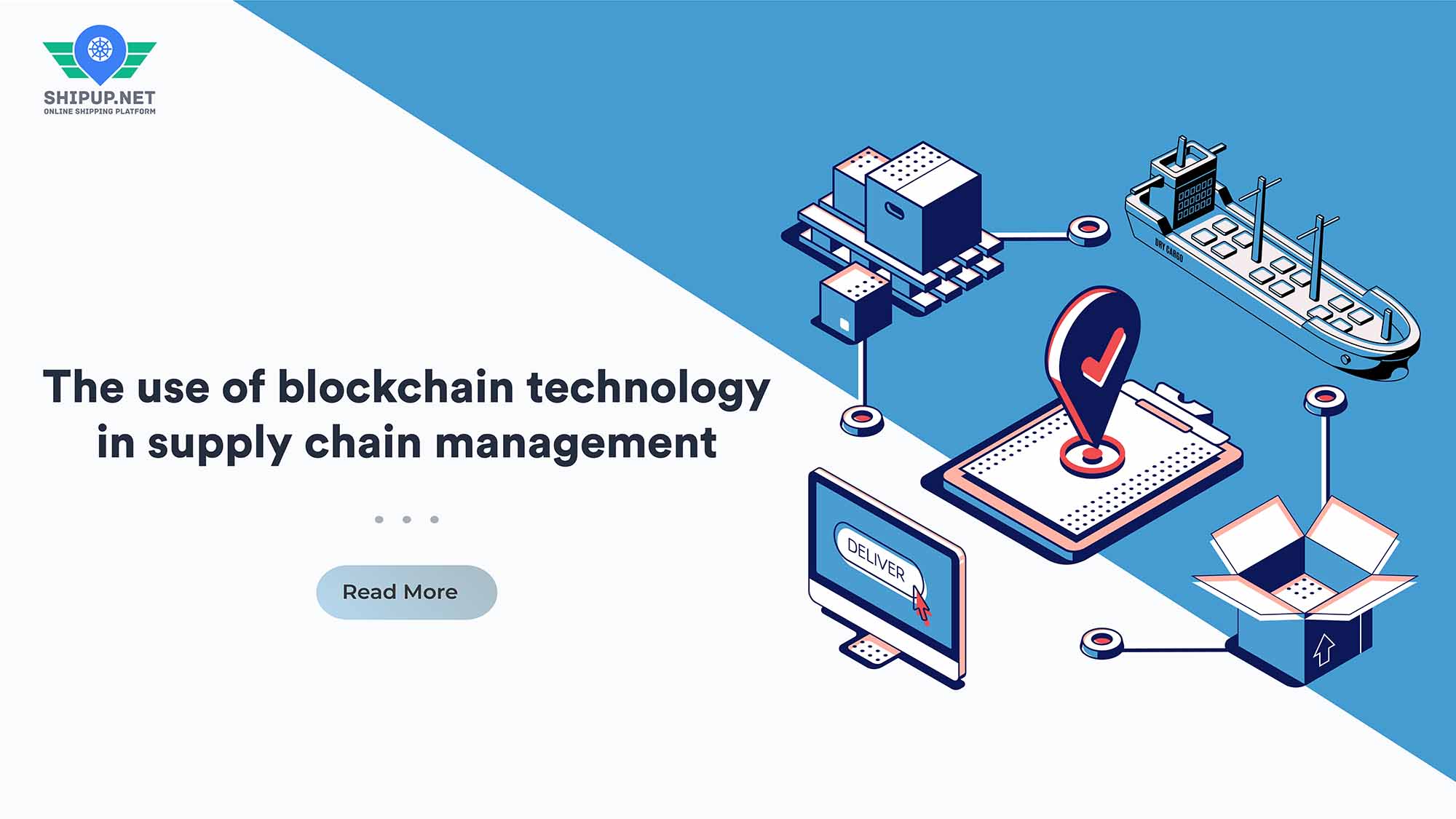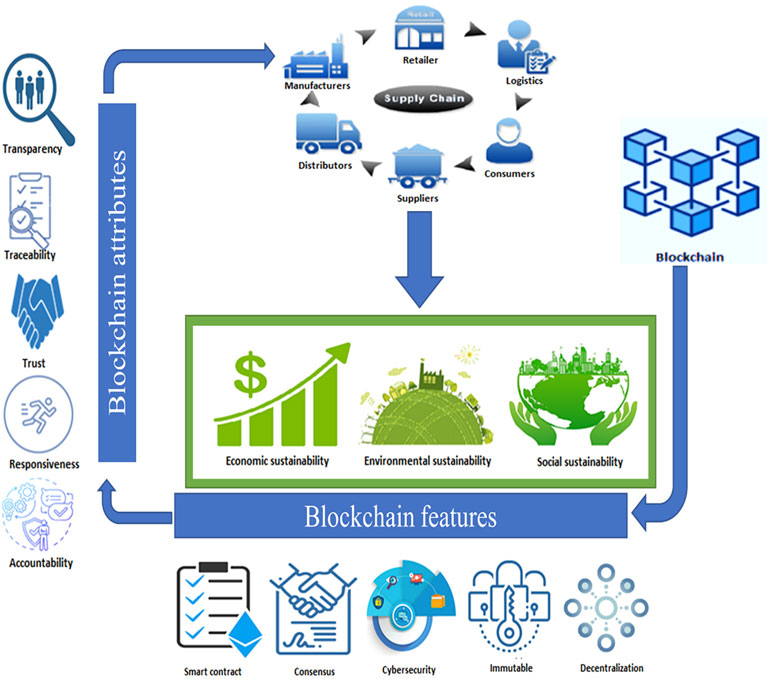Blockchain Integration in Ecommerce Supply Chains: Revolutionizing the Future of Retail
As we delve into the world of Blockchain Integration in Ecommerce Supply Chains, we uncover a landscape filled with innovation and transformation. This groundbreaking technology is reshaping how businesses operate within the supply chain, promising efficiency, transparency, and security like never before.
Let's explore the key components, challenges, solutions, and impactful outcomes of integrating blockchain in the ecommerce supply chain industry.
Overview of Blockchain Integration in Ecommerce Supply Chains
Blockchain integration in ecommerce supply chains involves the use of decentralized digital ledgers to enhance transparency, security, and efficiency in managing the flow of goods and information across the supply chain. By utilizing blockchain technology, companies can track transactions, monitor product origins, verify authenticity, and streamline processes seamlessly.
Benefits of Implementing Blockchain Technology in Supply Chain Management:
- Enhanced Transparency: Blockchain provides a secure and transparent record of all transactions, ensuring visibility and traceability throughout the supply chain.
- Improved Security: The decentralized nature of blockchain technology reduces the risk of fraud, tampering, and unauthorized access to sensitive data.
- Efficiency Gains: Smart contracts and automation enabled by blockchain streamline processes, reduce paperwork, and minimize errors, leading to cost savings and faster transactions.
- Supply Chain Traceability: Blockchain enables real-time tracking of products from manufacturer to consumer, ensuring authenticity and compliance with regulations.
Examples of How Blockchain is Revolutionizing the Ecommerce Supply Chain Industry:
- Food Safety: Companies like Walmart and Nestle are using blockchain to trace the origins of food products, ensuring quality control and quick response to recalls.
- Counterfeit Prevention: Luxury brands like LVMH are leveraging blockchain to authenticate products, combat counterfeiting, and protect brand reputation.
- Global Trade: Blockchain platforms such as TradeLens are digitizing trade documents, improving visibility, and reducing delays in cross-border transactions.
- Inventory Management: Ecommerce giants like Amazon are exploring blockchain to optimize inventory management, reduce stockouts, and enhance supply chain resilience.
Key Components of Blockchain Integration
Blockchain integration in ecommerce supply chains requires several key components to ensure its success. These components play a crucial role in streamlining transactions, enhancing security, and improving overall efficiency within the supply chain.
Smart Contracts in Facilitating Transactions
Smart contracts are self-executing contracts with the terms of the agreement between buyer and seller directly written into lines of code. These contracts automatically execute and enforce the terms of the agreement when predefined conditions are met. In the context of blockchain integration in ecommerce supply chains, smart contracts help facilitate transactions by automating processes, reducing the need for intermediaries, and ensuring transparency and trust among all parties involved.
- Smart contracts eliminate the need for manual intervention in transactions, reducing the risk of errors and delays.
- They enable real-time tracking of goods and services, providing visibility into the entire supply chain.
- Smart contracts help in establishing trust among participants by ensuring that agreements are executed as per the predefined conditions.
Data Encryption and Security
Data encryption and security are paramount in blockchain integration within ecommerce supply chains to safeguard sensitive information and prevent unauthorized access. By encrypting data and ensuring its security, blockchain technology helps in maintaining the integrity and confidentiality of transactions.
Data encryption plays a vital role in protecting sensitive information from cyber threats and unauthorized access.
- Blockchain technology employs cryptographic techniques to secure data and prevent tampering or unauthorized modifications.
- Encryption ensures that only authorized parties can access and view the data, enhancing the overall security of transactions.
- By maintaining a secure environment for data exchange, blockchain integration in ecommerce supply chains enhances trust and reliability among participants.
Challenges and Solutions in Implementing Blockchain Integration

Implementing blockchain integration in ecommerce supply chains comes with its own set of challenges that companies need to address. From scalability issues to resistance to change, there are various obstacles that need to be overcome for successful implementation.
Scalability Challenges
One of the major challenges faced by companies when integrating blockchain in their supply chains is scalability. As the number of transactions increases, traditional blockchains may struggle to handle the load, resulting in slower transaction speeds and increased costs
- Implementing sharding techniques to divide the blockchain network into smaller, more manageable parts.
- Utilizing layer 2 solutions like state channels and sidechains to offload some transactions from the main blockchain.
- Exploring newer consensus mechanisms like Proof of Stake (PoS) or Proof of Authority (PoA) to improve scalability.
Interoperability Challenges
Another challenge in implementing blockchain integration is ensuring interoperability between different blockchain networks and legacy systems. Lack of standardization and compatibility issues can hinder the seamless flow of data across the supply chain.
- Using middleware solutions to bridge the gap between different blockchain platforms and legacy systems.
- Participating in industry-wide consortiums to establish common standards and protocols for blockchain interoperability.
- Leveraging interoperability-focused blockchain platforms like Polkadot or Cosmos to facilitate communication between disparate networks.
Resistance to Change
Resistance to change is a common barrier when introducing new technologies like blockchain into existing supply chain processes. Employees may be hesitant to adopt new systems or workflows, leading to slow adoption and implementation.
- Providing comprehensive training and education programs to familiarize employees with blockchain technology and its benefits.
- Involving key stakeholders from different departments in the decision-making process to ensure buy-in and support for the integration.
- Demonstrating tangible examples of how blockchain integration can streamline operations, increase transparency, and improve efficiency to win over skeptics.
Impact of Blockchain Integration on Ecommerce Supply Chains

Blockchain integration has the potential to revolutionize ecommerce supply chains by enhancing transparency and traceability. This technology enables secure, decentralized record-keeping, which can significantly improve the visibility of products throughout the supply chain.
Enhancing Transparency and Traceability
Blockchain technology allows all parties involved in the supply chain to have real-time access to a secure and immutable ledger of transactions. This transparency helps to build trust among stakeholders and ensures that the origin and journey of products can be easily traced, reducing the risks of fraud or counterfeit goods.
Streamlining Processes
By leveraging blockchain technology, ecommerce businesses can streamline processes such as inventory management and order tracking. The decentralized nature of blockchain eliminates the need for intermediaries, reducing delays and improving the efficiency of supply chain operations.
Successful Implementations
Companies like Walmart and Maersk have successfully implemented blockchain integration in their ecommerce supply chains. For example, Walmart uses blockchain to track the origin of food products, ensuring quality and safety for consumers. Maersk, on the other hand, utilizes blockchain to streamline its shipping processes, improving transparency and efficiency in its supply chain operations.
Ultimate Conclusion
In conclusion, the integration of blockchain in ecommerce supply chains is paving the way for a new era of streamlined operations, enhanced visibility, and optimized processes. As companies embrace this transformative technology, the future of retail looks bright and promising in the digital age.
Question & Answer Hub
What are the benefits of implementing blockchain in supply chain management?
Blockchain offers increased transparency, enhanced security, reduced costs, improved traceability, and streamlined processes within the supply chain.
How can companies address issues related to scalability in blockchain integration?
Companies can explore solutions such as sharding, sidechains, and off-chain computation to improve scalability in blockchain integration.
What impact does blockchain integration have on inventory management?
Blockchain integration can streamline inventory management by providing real-time data on stock levels, reducing errors, and enhancing overall efficiency.